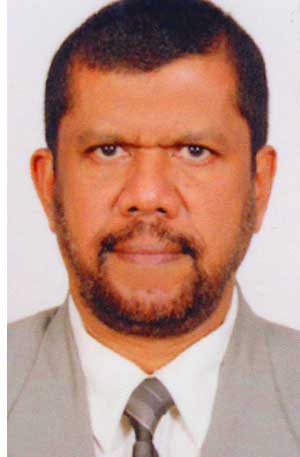Monday Feb 23, 2026
Monday Feb 23, 2026
Thursday, 14 May 2015 02:24 - - {{hitsCtrl.values.hits}}
Prof. Colin N. Peiris, Vice Chancellor of Horizon Campus, highlighted the importance and need of quality assurance and accreditation for Sri Lankan universities and institutes.

|
“With the globalisation of higher education, national frameworks have been developed in many countries for higher educational institutes that in turn have helped those countries obtain global recognition for their qualifications. In Sri Lanka we are also in the process of compiling a similar framework aimed at improving the quality of higher education offered by institutions throughout the country. It provides a comprehensive, nationally-consistent, flexible framework for all qualifications consisting of five codes of practice covering key aspects that need to be developed as components of a comprehensive QA framework.“
Explaining these areas Prof. Colin used his own institute, Horizon Campus as an example. Maintaining these practices has led to Horizon Campus, after just five years in the industry, achieving the position of being the only private sector educational institute in Sri Lanka to obtain recognition from the University Grants Commission (UGC) and the Ministry of Higher Education under two separate external assessments.
Prof. Peiris added: “The first criterion was giving our academic panel training opportunities to enhance their teaching methodologies on a constant basis. The second was ensuring that our students attained the competencies and skills required by employers. For this our lecturers give students many hours of individual attention to provide the knowledge and understanding they require in various disciplines of study. This includes honing their ability to demonstrate both technical skills and soft skills and being able to apply this knowledge in a practical business context along with the confidence to exercise personal responsibility and accountability in their tasks in the workplace.
“The third is focusing attention on consistency and comparability in promoting student mobility by creating more flexible arrangements for student learning by enabling them to combine employment with study through the Sri Lanka Qualifications Framework. The fourth is to induce quality as a main principle in every operation.
“This can be achieved by basing it around an internal system that continuously provides quality education though a holistic approach on a day-to-day basis. We have done this at Horizon Campus by using this method in our curriculum design and content and review, teaching, learning and assessment methods, the quality of students, including student progress & achievement, extent & use of student feedback, skills development and academic guidance and counseling. The fifth is to create a quality culture within the institution with the implementation of these internal QA mechanisms and create a sense of responsibility and new awareness of quality process approaches throughout the whole of Horizon campus and its staff.”
“I am confident that this is the way forward for us and I urge all higher education institutes in the country to adopt such methodologies. This in turn will position our education systems amongst the top in the education market globally and could result in the country reaping many benefits similar to those in the UK, Australia and Singapore,” he asserted.
In addition to being Vice Chancellor of Horizon Campus, Prof. Peiris, currently serves as Director, Quality Assurance and Accreditation (QAA) on the Council of the University Grants Commission of the Ministry of Higher Education and is a Quality Assurance Expert in Higher Education.
He served on the Board of Directors of the International Network for Quality Assurance Agencies in Higher Education (INQAAHE) and is a member of the Guideline for Good Practices Committee, INQAAHE. He is serving a fourth successive term on the Director Board of the Asia Pacific Quality Network (APQN).
Prof. Peiris has been responsible for the establishment of the Quality Assurance system in Sri Lankan Higher Education. He is the recipient of six national and international awards that include Quality Champion in 2013 and the Best Reviewer Trainer in 2014 for the Asia Pacific region. He has published a range of both national and international publications and research articles on Quality Assurance in Higher Education.